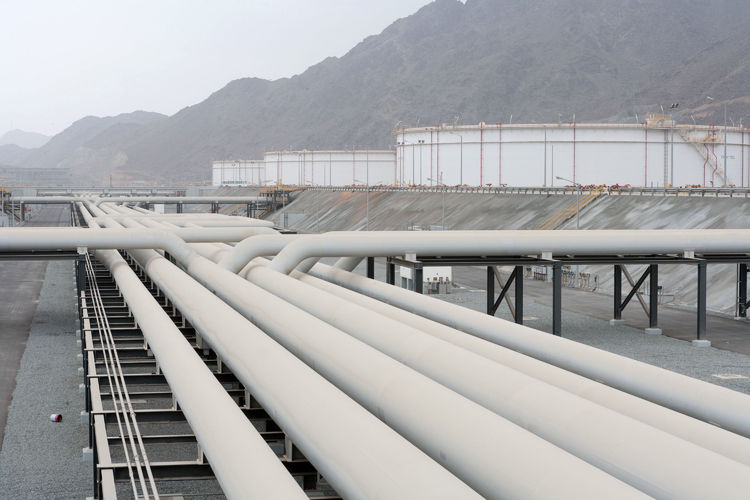Some of the world’s biggest oil producers have agreed to cut production for the first time in eight years, sending crude prices higher by more than 6 per cent and sparking big gains for energy stocks.
After more than four hours of talks in Algeria on Wednesday Opec committed itself to reducing output to between 32.5m barrels a day and 33m b/d, according to ministers.
The agreement surprised oil traders who thought a consensus would be difficult to reach because of divisions between Saudi Arabia and Iran, two of Opec’s largest and most influential members. Brent crude jumped $2.84 a barrel to $48.85.
Brent crude, the global oil benchmark, dipped 37 cents to $48.32 on Thursday morning, while West Texas Intermediate was off 18 cents at $46.87, as traders took profits following gains of more than 5 per cent overnight. That rebound also galvanised energy shares around the globe.
Australia was the standout, with the S&P/ASX 200 energy index surging 5.7 per cent, on track for its biggest rise since mid-April. Origin Energy, Santos and Beach Energy were all up between 7 and 10 per cent.
The Opec push marks the first co-ordinated action to bolster crude prices that have battered the finances of producer economies since the oil collapse began two years ago. The last time the cartel cut production was during the financial crisis in 2008.
It is also a shift in the Saudi-led Opec strategy of pumping flat out to maintain market share and put pressure on high-cost producers such as US shale drillers.
But the lack of detail on how much each producer will limit output, if at all, will raise questions among oil analysts and other market observers on the execution and success of any deal in easing an oversupplied market.
The new production target is a decrease of between 240,000 b/d and 740,000 b/d from the 33.24m b/d the cartel pumped in August, according to analysts’ estimates compiled by Opec.
Emmanuel Ibe Kachikwu, Nigeria’s minister of state for petroleum resources, said Opec would set up a committee to work out how the reduction in production will be split among members. It will report back to the group in November, which is when Opec plans to hold its next formal ministerial meeting in Vienna.
The amount of oil taken off the market will determine how successful the deal is in alleviating a supply glut. Oil analysts and people familiar with Saudi oil policy believe between 700,000 and 1m b/d needed to be taken off the market to have a meaningful impact on global supplies and prices.

 Forex3 weeks ago
Forex3 weeks ago


 Naira2 weeks ago
Naira2 weeks ago
 Billionaire Watch2 weeks ago
Billionaire Watch2 weeks ago




 Naira3 weeks ago
Naira3 weeks ago




 Naira2 weeks ago
Naira2 weeks ago




 Naira1 week ago
Naira1 week ago




 Naira4 weeks ago
Naira4 weeks ago




 Naira4 weeks ago
Naira4 weeks ago




















